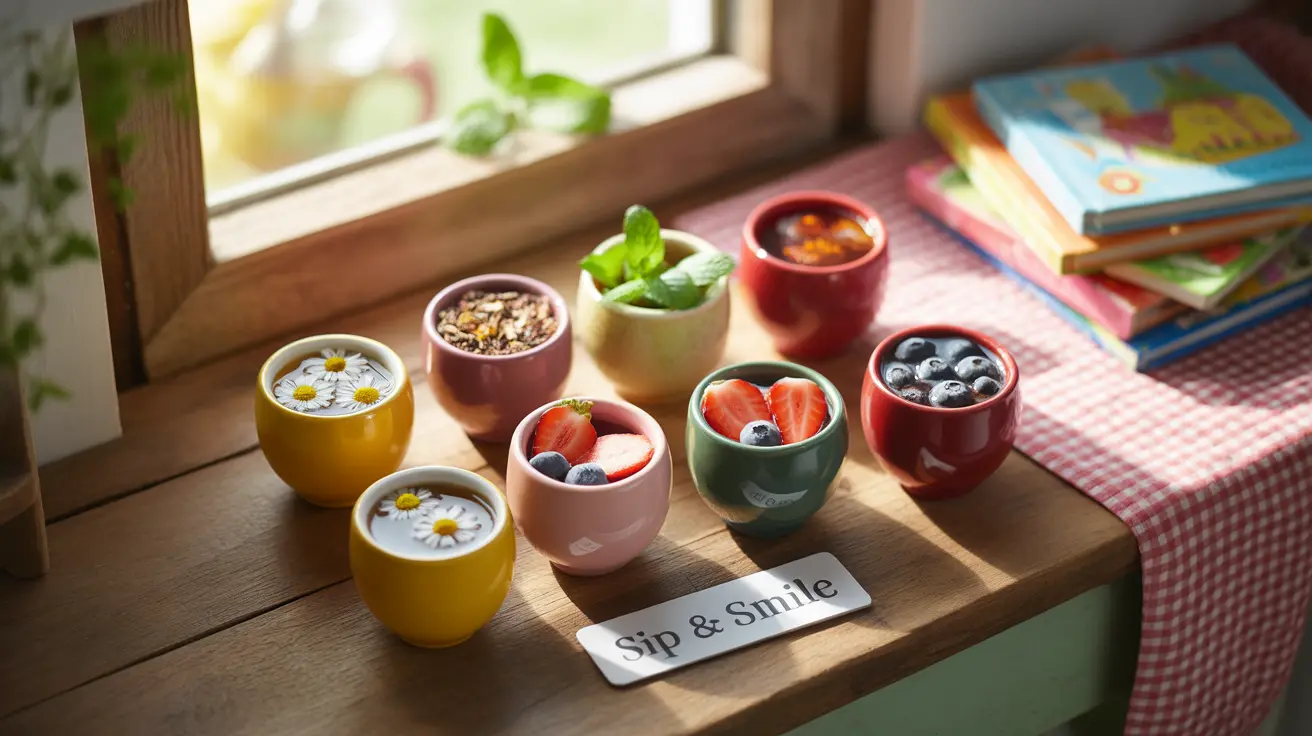As parents explore beverage options for their little ones, many wonder about introducing tea to their toddlers. While some teas can be safe and even beneficial for toddlers, it's crucial to understand which types are appropriate and how to serve them safely. This comprehensive guide will help you make informed decisions about giving tea to your toddler.
Understanding Tea Safety for Toddlers
Not all teas are created equal when it comes to serving them to young children. The key consideration is whether the tea contains caffeine, which can affect toddlers differently than adults. Additionally, the temperature and preparation method play important roles in ensuring safety.
Safe Tea Options for Toddlers
Caffeine-Free Herbal Teas
Several herbal teas are generally considered safe for toddlers when served appropriately:
- Chamomile tea
- Rooibos tea
- Mint tea
- Fruit-based herbal teas
- Ginger tea
These options are naturally caffeine-free and can offer various benefits when served in moderation.
Teas to Avoid
Certain teas should never be given to toddlers due to their caffeine content or other concerns:
- Black tea
- Green tea
- White tea
- Oolong tea
- Energy-boosting herbal blends
- Any tea with added sweeteners or artificial ingredients
Proper Tea Preparation for Toddlers
When preparing tea for your toddler, follow these essential guidelines:
- Always use room temperature or lukewarm tea
- Steep herbal teas for the recommended time
- Never add honey to tea for children under 12 months
- Use organic, high-quality tea products
- Start with small amounts to monitor reactions
Benefits of Appropriate Tea Choices
When selected and prepared correctly, certain teas can offer various benefits for toddlers:
- Hydration support
- Soothing properties for upset tummies
- Comfort during cold symptoms
- Calming effects before bedtime
- Natural flavor variety in their beverage options
Frequently Asked Questions
Can toddlers safely drink tea, and which types of tea are recommended for them?
Yes, toddlers can safely drink certain types of tea, particularly caffeine-free herbal options like chamomile, rooibos, and mint tea. These should be served at a safe temperature and in moderate amounts.
Why should toddlers avoid caffeinated teas like black and green tea?
Toddlers should avoid caffeinated teas because their bodies are more sensitive to caffeine than adults. Caffeine can affect their sleep patterns, cause irritability, and potentially impact their developing nervous system.
Are herbal teas like chamomile safe for toddlers, and what precautions should parents take?
Chamomile and other herbal teas can be safe for toddlers when properly prepared. Parents should use organic products, serve tea at appropriate temperatures, and start with small amounts to watch for any adverse reactions.
How can I introduce tea to my toddler without causing allergic reactions or other health risks?
Start by offering a small amount of a single-ingredient herbal tea, such as chamomile or rooibos. Wait several days before introducing another variety, and always watch for any signs of allergic reactions or sensitivity.
Can giving tea to toddlers help with common symptoms like coughs or trouble sleeping?
Certain herbal teas may help soothe common ailments in toddlers. Chamomile tea might help with sleep, while ginger or mint tea could help with upset stomachs. However, always consult with your pediatrician before using tea as a remedy.




